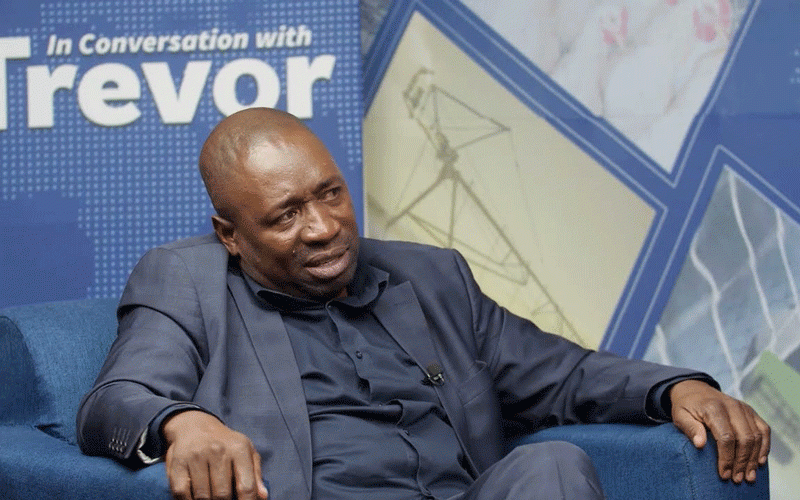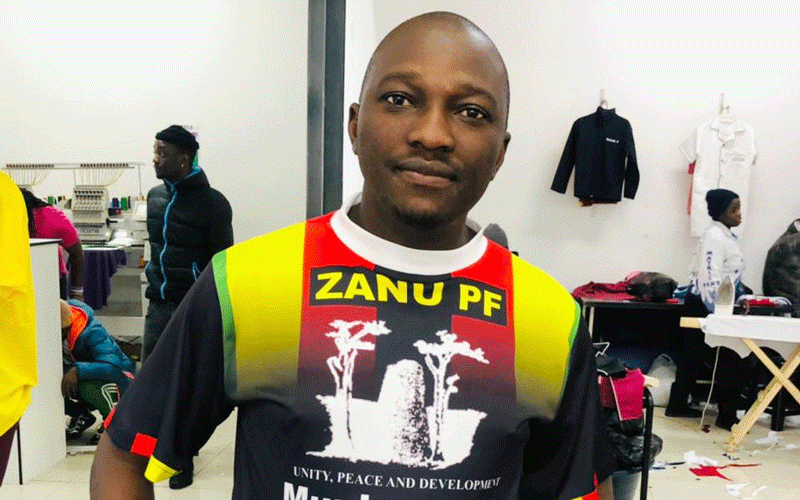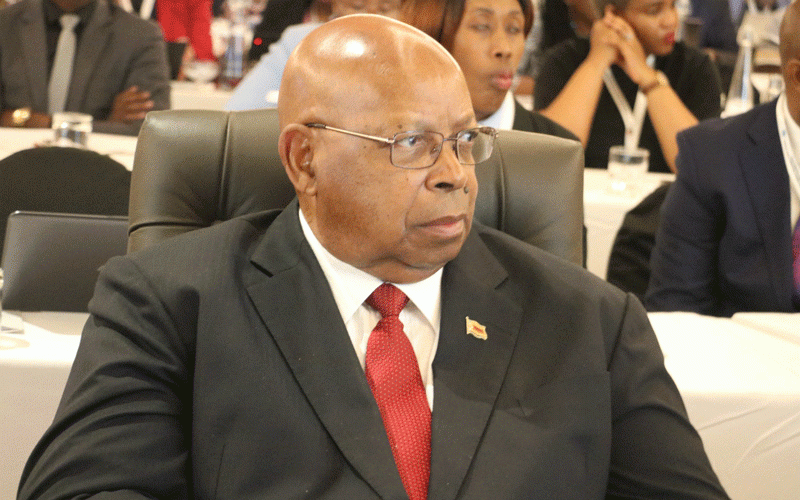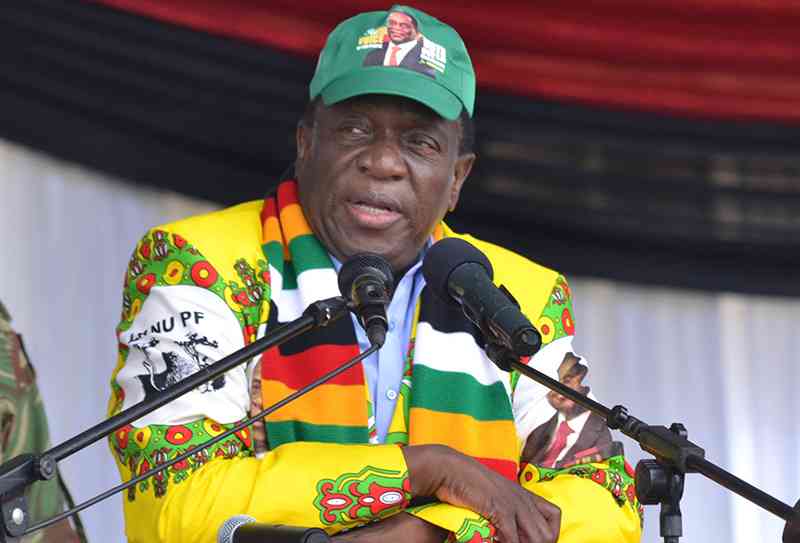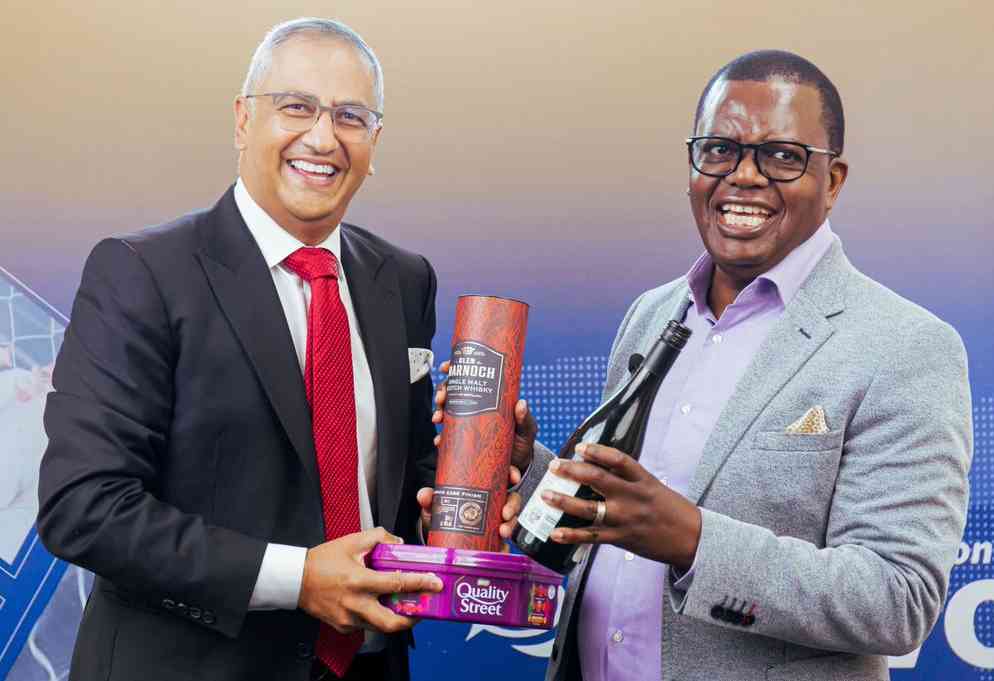
Bulawayo-born global fund manager and entrepreneur Ritesh Anand says Zimbabwe lacks a conducive environment to build sustainable capital markets.
Anand (RA), who once sat on the Reserve Bank of Zimbabwe board, spoke about his experience as an entrepreneur at home and in the diaspora when he appeared on the platform In Conversation with Trevor UK Series hosted by Alpha Media Holdings chairman Trevor Ncube (TN).
Below are excerpts from the conversation.
TN: Greetings, welcome to In Conversation with Trevor UK Series, brought to you by the Nyaradzo Group. Ritesh Anand, my good friend, so delighted to connect with you in the UK.
RA: Thank you so much. And it's a pleasure to be here. And it's an absolute pleasure to see you again.
TN: Absolute pleasure for us to talk. I mean, we've been friends going a long way back.
You are a global fund manager with 25 years’ experience. You handle billions of dollars, allocating them all over.
Ritesh, when you look back, what goes through your mind? What does your reflection in your life bring to mind.
- Rampaging inflation hits Old Mutual . . . giant slips to $9 billion loss after tax
- Monetary measures spur exchange rate stability: RBZ
- Zim deploys IMF windfall to horticulture
- Banker demands $21m from land developer
Keep Reading
RA: First of all, I’m extremely grateful. It's been a wonderful journey. It's a wonderful life. It’s nowhere near finished.
There's so much more for me to do and to accomplish. But you know, growing up in Bulawayo, as you know, what I'm most grateful for is the education.
I think Zimbabwe had a tremendous education system.
And I was able to go through that system and to benefit massively from then going on to study economics at the University of Warwick, which is considered to be one of the leading universities in the UK for economics.
I think it's in the top three.
I wanted to understand how the economy worked. And so that led my journey to the UK initially to study.
TN: Which schools did you go to in Bulawayo?
RA: I went to St. Thomas Aquinas for primary school and then went to Christian Brothers College for high school.
TN: And where did this passion come from? I want to understand how economies work. Where did that come from? I mean, it's an interesting sort of curiosity, isn't it?
RA: It is. I came from a family of entrepreneurs. My dad was in business and before him, my grandfather started the business.
So my grandfather emigrated from India in 1926. We were, I think, the second Indian family to settle in Zimbabwe.
And I remember my grandfather telling me stories about sleeping under the trees by the river.
I think his journey was the toughest…he started his business by buying 2kg packets of rice and packing it into 200 grams, buying big bars of soap and cutting them into small pieces and selling them.
And that's his journey in entrepreneurship.
TN: And then your dad, what did your dad do?
RA: So my dad took over the business from my grandfather.
So my grandfather started Anand Brothers. Anand Brothers had three departments. It had a clothing shop. It had a material shop and it had a supermarket.
And from a young age, we would sleep under the shop counter, and I think by the age of 10, I was counting money.
My grandfather would make us sit in the office and my brother and my sister would sit there. We'd be counting money.
So that sort of interest in business was early on. But actually my interest in economics didn't come from there.
When I was doing my 'O’Levels, I studied commerce. I started to take an interest in how businesses were run, but also how economies should function.
And so for me, the dynamics and the interplay between fiscal policy and monetary policy was just int eresting, really interesting.
TN: You are now in the diaspora and your story is fascinating because you got back to Zimbabwe thinking that things were okay, you could make it, and things didn't work out well.
You had to come back again. And you and I had a conversation before you made both decisions.
Walk me through that season of your life, focusing on having to make the tough decision.
RA: So taking a step back, that decision in 2010, I was working at the Wellcome Trust, one of the largest endowment funds in the world.
I was head of Africa and the Middle East.
This is a US$45 billion endowment. So the second largest endowment in the world, and I had everything.
So there was no reason for me to come back to Zimbabwe except my love for the country.
TN: I remember you saying I need to convince my wife that we should do this.
RA: That's correct.
TN: That took another two years, right?
RA: So she didn't come for two years. And so I was agonising over this decision.
Do I leave the Wellcome Trust and come back to Zimbabwe?
And the real reason was I had spent eight years at Wellcome. I had developed knowledge of what institutional investors look for.
TN: So what are the conditions? What are the factors that an investor would look for, a foreign investor, if they were investing in an emerging market or a frontier market like Zimbabwe?
RA: And so I understood that language. I understood my country, or at least I thought I understood my country.
But the country I had left, or at least the country that I had got to was not the same country I'd left.
And I think that was the big misjudgment on my part.
But we had a conversation on the aeroplane. You convinced me to come. I thought it was the right decision. It was an amazing journey. I was in Zimbabwe for six years.
I set up Invictus Capital. So a bit like my grandfather did 50 years ago, I had the opportunity to set up my own business.
I bought a stockbroking firm called Prime Stockbrokers, and we rebranded it Invictus.
I bought that for US$1. It had US$250 000 of liabilities, and hadn't paid salaries for like eight months.
We transformed that business and grew it from like the 15th broker in the market to like the top three. So that was a fascinating journey.
I worked on the rights issue for Bandura Nickel. We raised money for Rio Zimbabwe. I was a new kid on the block.
We were making waves. I wrote a column in your newspaper, The Zimbabwe Independent, which, you know, my idol was Eric Block.
And so to have the opportunity to write that column was a tremendous honour.
And I loved it. I mean, every Wednesday I would dedicate my entire day to preparing to write that article.
And then ultimately, I got appointed to the board of the RBZ (Reserve Bank of Zimbabwe).
And I mean, having spent just five years in Zimbabwe to be appointed to this very significant position was a great honour.
And I was chairman of the investment committee at Zamco (Zimbabwe Asset Management Corporation).
We bought a lot of bad loans, non-performing loans, from the banks, and helped restructure those companies.
As you can remember, at that time, inflation was starting to creep, but interest rates were 25%.
No corporate in the world can pay 25% interest in US dollars.
So we issued a long-term bond, at least the central bank did, and we kind of restructured those.
So it was an amazing journey. And I loved it. I loved every bit of it. But it became challenging. It became very, very challenging. And, you know, they introduced the bond notes.
TN: And when you say it became challenging just before they introduced the bond notes, unpack that for us.
What does that mean in terms of your day-to-day life, your encounters in the business world? What does that mean?
RA: So, you know, capital markets rely on stable macroeconomic conditions, stable political conditions, and the ability to attract foreign direct investment.
My business relies heavily on that. And when one of those factors starts to change, it produces massive risks for business.
So you cannot build a sustainable capital markets business in Zimbabwe when the infrastructure or the environment is not conducive.
And so all of those transactions started to dry up. So foreigners who were net buyers of Zimbabwean equities became net sellers.
TN: Where do you think the market capitalisation is today?
RA: No idea. It is still US$3 billion to US$4 billion. And the newly created (Victoria Falls Stock Exchange) VFEX is US$1.2 billion.
So in 20 years, there's been zero growth. In Zimbabwe, we're going the other direction.
I can't. You know, there was just no way that I could continue, based on my experience, to contribute in a meaningful way to the country.
TN: So you opted to leave? What did your wife say?
RA: I told you so. Never again. I won't do that again. Yeah, it was tough. I'm Zimbabwean.
I love my country. It doesn't matter what's happening there. It's very different from where I am.
But aside from that, my children benefited massively from being in Zimbabwe.
The sad thing is that the education is gone to the dogs.
Except for people like you and I, who can afford private schools.
So the entire nation is losing in terms of growing talent for the future. And the politicians are not getting that.
- This United Kingdom series of “In Conversation With Trevor” is brought to you in partnership with Nyaradzo Group. “In Conversation With Trevor” is a weekly show broadcast on YouTube.com//InConversationWithTrevor.


